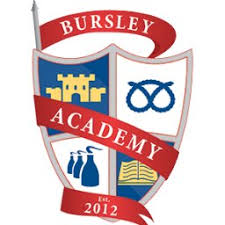At Bursley Academy, Maths is taught through our skills based curriculum, with fluency, reasoning and problem solving at its core. The application of maths in real life contexts enriches the children’s learning of Maths skills, making them relevant and meaningful. Discrete Maths teaching is taught daily in every class, ensuring that the National Curriculum expectations are met.
In line with the Collective Vision Trust, we have adapted the White Rose Maths Scheme as the basis of our mathematics curriculum. White Rose is a carefully sequenced scheme that builds up children’s mathematical knowledge through clear, explicit teaching. It makes good use of developing mathematical knowledge through using concrete apparatus to pictorial representation and, then, to abstract thinking. It is designed to support the development of reasoning and problem solving alongside fluency to support challenge and ambition. White Rose is a tool to support the teaching for Maths at Bursley, but not the main driving force. Children’s understanding of the Crucial Knowledge is at the core of the teaching and learning, therefore additional resources and learning opportunities can be incorporated where needed.
We have used this curriculum to draw out the crucial knowledge that is the foundation of mathematical learning that gives children the fundamental building blocks to develop their mathematical understanding and progress. We have ensured that we build in lots of opportunities for children to recap their knowledge in order to ensure it is firmly embedded and, that, their learning is part of their long term memory.
White Rose Maths scheme has a clear rationale for the sequence of the topics. Maths learning requires some things to be learned before others, for example place value needs to be understood before working with addition and subtraction. Similarly, addition needs to be learnt before looking at multiplication. White Rose, quite rightly, puts the emphasis on number skills first in all year groups. Number is the crucial building block for all areas of mathematics and, so, must be prioritised.
For some topics (e.g. shape and statistics) the order is not crucial – they need to come after number, but don’t depend on each other, and, so, they can be taught in any order. The sequencing of these is planned to give as wide a variety of topics for pupils as possible in each term and year.


